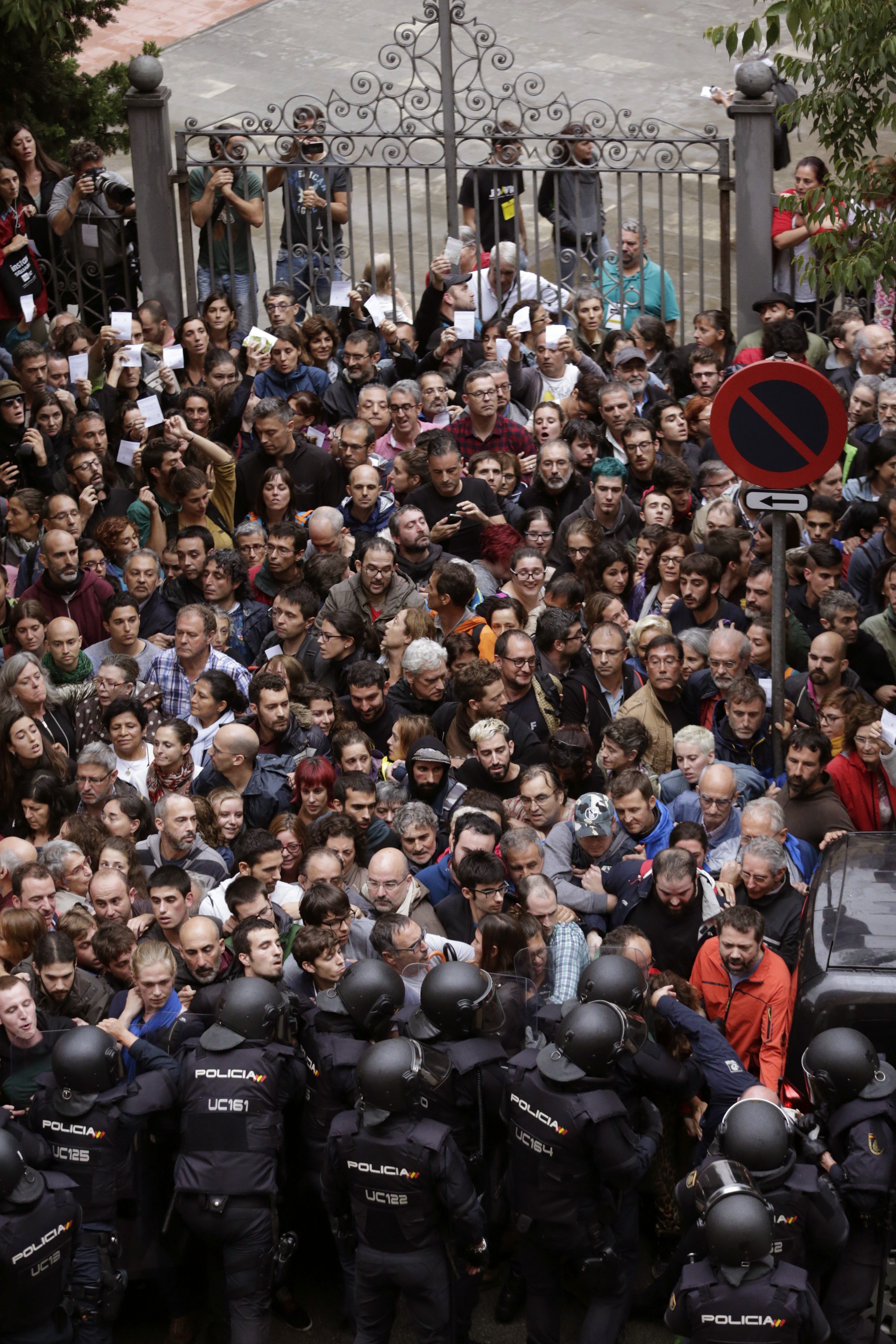The general secretaries of the UGT (General Union of Workers), Camil Ros, and of CCOO (Workers' Commissions), Javier Pacheco, have announced in a press conference today a "standstill" for Catalonia tomorrow, Tuesday, after the "attacks on the society of Catalonia".
Both unions made calls for "proportional" mobilisations in response to the "trampling over rights" this Sunday and made it clear that "it can't happen again". The ask that not only workers strike, but business owners too.
Els secretaris generals de la @ugtcatalunya i @ccoocatalunya convoquen la ciutadania a una #AturadaDePais #3-O #Democracia #2Oct pic.twitter.com/0oYZyjlmqr
— Public services UGT (@fespcat) 2 of October 2017
Translations: The general secretaries of UGT and CCOO call the public to a country standstill on 3rd October.
Police violence aside, UGT and CCOO also described it as "unacceptable" that "they've violated the right of many citizens to take part in the referendum". As such, they've called on political parties in and outside of Catalonia to "propose an alternative to the PP [Popular Party] government", signaling that they consider them "responsible" for yesterday's violence
"Això va d'aconseguir que tothom es mulli per deixar clar que el que ahir va passar no és torni a repetir" @PachecoJpacheco #Democràcia pic.twitter.com/kgOnVxKE6s
— CCOO of Catalonia (@ccoocatalunya) 2 of October 2017
The decision of the Catalan branches of the unions to join the strike, clashes with what their Spanish leaderships had said, although agrees with the "Democracy Board" which they are both members of. In a joint statement published this Monday, their national managements distanced themselves from the movement since "in no case will we support positions that give cover to the unilateral declaration of independence", an opinion not shared by Ros and Pacheco.
"The statements by [Catalan] president Puigdemont on the evening of 1st October left no room for doubt that the only political strategy being contemplated by the Catalan government is the unilateral declaration of independence. As such, UGT and CCOO state clearly that we do not support this position, nor this political strategy," said the press release.
The national organisations of both unions have emphasised that they continue supporting "political and institutional negotiation to redirect the political conflict" in Catalonia. As such, they urged the Catalan executive to "not proceed with any more unilateral measures, especially the declaration of independence".

